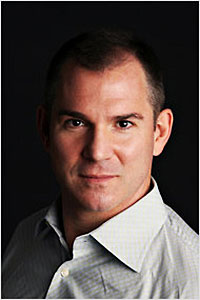I'm 51. My health is decent. And while my mother died young, there's longevity elsewhere in the family tree.
I could live to see an openly gay presidential candidate with a real chance of victory.
Will there be a "special place in hell" for me if I, as a gay man, don't support him or her?
I can guess Madeleine Albright's answer. She more or less told women that they're damned if they're not on Hillary Clinton's team.

I'm still trying to get my head around that -- and around Gloria Steinem's breathtakingly demeaning assertion that young women who back Bernie Sanders are in thrall to pheromones, not ideas or idealism, and angling to score dates with the young bucks in the Sanders brigade.
That's right, "Democratic socialism" is a known aphrodisiac: the oyster of politics. There's nothing like denunciations of oligarchs to put you in the mood.
Also, has Steinem forgotten about lesbians? More than a few of them support Mr Sanders, and it's not because of the way some 26-year-old doctoral candidate looks in his LL Bean flannel.
There's a weird strain of thought swirling around Ms Clinton's campaign: that we should vote for her because she's a woman. Or that she's inoculated from certain flaws or accusations by dint of gender. Or that, at the least, there's an onus on forward-looking people who care about gender inequality to promote her candidacy.
I care about gender inequality, and I don't buy it. It's bad logic. It's even worse strategy. People don't vote out of shame. They vote out of hope.
Ms Clinton, who lost the New Hampshire primary on Tuesday, is on sturdy ground, morally and tactically, when she mentions a double standard for women. So are her surrogates. Actually, there are so many double standards that you couldn't fit them in a column eight times the length of this one, and she has bumped into plenty, including, yes, the fuss over her raised voice.
But the argument that she's somehow not a full-fledged member of the establishment because she's a woman -- as she contended during the most recent Democratic debate -- is nonsense. On that night, she also echoed a past statement to CBS News that she "cannot imagine anyone being more of an outsider than the first woman president".
Really? Anyone? Off the top of my head I can think of a person who might quibble with that. His name is Barack Obama.
Admittedly, there's no easy way to navigate the terrain she inhabits. Eight years ago, she denied her campaign the romantic sweep of Mr Obama's by playing down and trying to correct for gender. This time around, she was advised, rightly, not to repeat that mistake. But how to do that without going too far?
I think she started out perfectly, with incontestable reflections on women's challenges in the workplace and with casual asides about the historic nature of her bid. Discussing her age, she said, "I will be the youngest woman president in the history of the United States".
But more recently, things have fallen out of whack. Bill Clinton's diatribe about the misogyny of some Sanders supporters sounded like a defensive outsourcing of blame for any disappointments in the polls and the returns: the narrowest of victories in Iowa followed by the New Hampshire defeat.
The Clintons are always quick to point fingers and slow to look in the mirror. "When the exact same problems crop up in separate campaigns", the Democratic political strategist David Axelrod tweeted on Monday, "at what point do the principals say, 'Hey, maybe it's US?'"
On top of which, Bill Clinton's invocation of sexism felt too pat, his citation of gross language on Twitter (which, sadly, brims with it) too easy.
Ms Clinton's gender indeed matters. Just as you couldn't evaluate Mr Obama's arc without factoring in race, you can't see her accurately without recognising she's a woman of her time, with all the attendant obstacles, hurts, compromises and tenacity.
That informs -- and, ideally, illuminates -- her perspective. And her presidency would carry a powerful, constructive symbolism that can't and shouldn't be ignored.
But those are considerations among many, many others in taking her measure and in casting a vote. To focus only or primarily on them is more reductive than respectful, and to tell women in particular what kind of politics they should practice is the antithesis of feminism, which advocates independence and choices.
We're all complicated people voting for complicated people. We're not census subgroups falling in line.
I'll go to the barricades for that imagined gay candidate if he or she has talents I trust, positions I respect and a character I admire. If not, I'll probably go elsewhere, because being gay won't be the sum of that person, just as womanhood isn't where Ms Clinton begins and ends. ©2016 The New York Times
Frank Bruni is a columnist with The New York Times.
